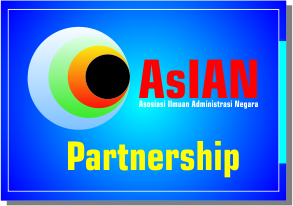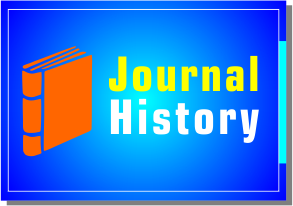Policy Adaptation as Impact of Coronavirus Diseases 2019 in Indonesia: Economic and Social Perspectives in 2020
DOI:
https://doi.org/10.31334/transparansi.v5i2.2773Keywords:
Strategy, Economic and Social, Build Back Better, Policy Adaptation,Abstract
There are two purposes of this paper. First, to describe the selected strategy as an impact of coronavirus diseases 2019 (COVID-19) in Indonesia. Second, how is the government's response through policies in the economic sector and social life as well as look at the challenges in reducing risks in future. This paper used a viewpoint design for countermeasures of COVID-19 in Indonesia. The policy adaptation made by the government is aimed at economic and social strategies. Build Back Better policy will be the principle in adapting policies in the economic and social fields for Indonesia. There are three strategy for Build Back Better-based policies in the response to Covid-19 in Indonesia. They are building back stronger, building banck faster and building back more inclusiveness. This paper explain information about impact of COVID-19 in Indonesia, how is the government's strategy and policy adaptation carried out in dealing with it, and policy challenges in the economic and social fields in future.References
Badan Pusat Statistik. (2020). Socio-Demografic Survey on Covid-19 Impact. Jakarta: BPS RI
Badan Pusat Statistik. (2019). National Socio-Economic Survey Report. Jakarta: BPS RI
Dupuis, J., P. Knoepfel. (2013) The adaptation policy paradox: the implementation deficit of policies framed as climate change adaptation. Ecology and Society, 18(4), 31-47.
Hallegatte, S., V. Przyluski, and A. Vogt-Schilb. (2011). Building World Narratives for Climate Change Impact, Adaptation and Vulnerability Analyses. Nature Climate Change, 1(June),151-155.
Hallegatte S., J. Rentschler, B. Walsh. (2018). Building Back Better, Achieving resilience through stronger, faster, and more inclusive post-disaster reconstruction. Washington DC: World Bank.
IPCC (2012) Summary for Policymakers. In: Managing the Risks of Extreme Events and Disasters to Advance Climate Change Adaptation. A Special Report of Working Groups I and II of the Intergovernmental Panel on Climate Change [Field, C.B.,V. Barros,T.F. Stocker, D. Qin, D.J. Dokken, K.L. Ebi, M.D. Mastrandrea, K.J. Mach, G.-K. Plattner, S.K. Allen, M. Tignor, and P.M. Midgley (eds.)]. Cambridge University Press, Cambridge, UK and New York, NY, USA, pp. 1-19.
Irawan, B. (2016). Organizational Capacity Development to Respond to Social Services for Homeless Children. Indian Journal of Science and Technology, 9 (39),1-5
Karim, A., and I. Noy. (2016). Poverty, Inequality and Natural Disasters – A Qualitative Survey of the Empirical Literature. Singapore Economic Review, 61 (1): 1–36
Ministery of Finance. (2020, July 7). Kemenkeu Response Covid-19: Latest Information. Retrieved from https://www.kemenkeu.go.id/covid19
OECD (2020, July 6) Building Back Better: A Sustainable,
Resilient Recovery after Covid-19, Retrieved from https://www.oecd.org/coronavirus/policy-responses/building-back-better-a-sustainable-resilient-recovery-after-covid-19-52b869f5/
Suryahadi, A., R. Al Izzati, D. Suryadharma. (2020). ‘The Impact of Covid-19 Outbreak on Poverty: An Estimation for Indonesia’ SMERU Working Paper, Jakarta: The Smeru Research Institute
United Nations General Assembly. (2016). Report of the Open-Ended Intergovernmental Expert Working Group on Indicators and Terminology Relating to Disaster Risk Reduction. Seventy-First Session, Item 19(c). A/71/644
Worldometer (2020, July 31) Covid-19 Coronavirus Pandemic. Retrieved from https://www.worldometer.info/coronavirus/
Downloads
Published
Issue
Section
License

This work is licensed under a Creative Commons Attribution-ShareAlike 4.0 International License
Please find the rights and licenses in Transparansi : Jurnal Ilmiah Ilmu Administrasi By submitting the article/manuscript of the article, the author(s) agree with this policy. No specific document sign-off is required.
- License
The commercial use of the article will be governed by the Creative Commons Attribution license as currently displayed on Creative Commons Attribution-ShareAlike 4.0 International License.
2. Author(s)' Warranties
The author warrants that the article is original, written by stated author(s), has not been published before, contains no unlawful statements, does not infringe the rights of others, is subject to copyright that is vested exclusively in the author and free of any third party rights, and that any necessary written permissions to quote from other sources have been obtained by the author(s).
3. User Rights
Transparansi : Jurnal Ilmiah Ilmu Administrasi spirit is to disseminate articles published are as free as possible. Under the Creative Commons license, Transparansi : Jurnal Ilmiah Ilmu Administrasi permits users to copy, distribute, display, and perform the work for non-commercial purposes only. Users will also need to attribute authors and Transparansi : Jurnal Ilmiah Ilmu Administrasi on distributing works in the journal and other media of publications.
4. Co-Authorship
If the article was jointly prepared by more than one author, any authors submitting the manuscript warrants that he/she has been authorized by all co-authors to be agreed on this copyright and license notice (agreement) on their behalf, and agrees to inform his/her co-authors of the terms of this policy. Transparansi : Jurnal Ilmiah Ilmu Administrasi will not be held liable for anything that may arise due to the author(s) internal dispute. Transparansi : Jurnal Ilmiah Ilmu Administrasi will only communicate with the corresponding author.
5. Miscellaneous
Transparansi : Jurnal Ilmiah Ilmu Administrasi will publish the article (or have it published) in the journal if the article’s editorial process is successfully completed. Transparansi : Jurnal Ilmiah Ilmu Administrasi editors may modify the article to a style of punctuation, spelling, capitalization, referencing and usage that deems appropriate. The author acknowledges that the article may be published so that it will be publicly accessible and such access will be free of charge for the readers as mentioned in point 3.
Every accepted manuscript should be accompanied by "Copyright Transfer Agreement"prior to the article publication.











